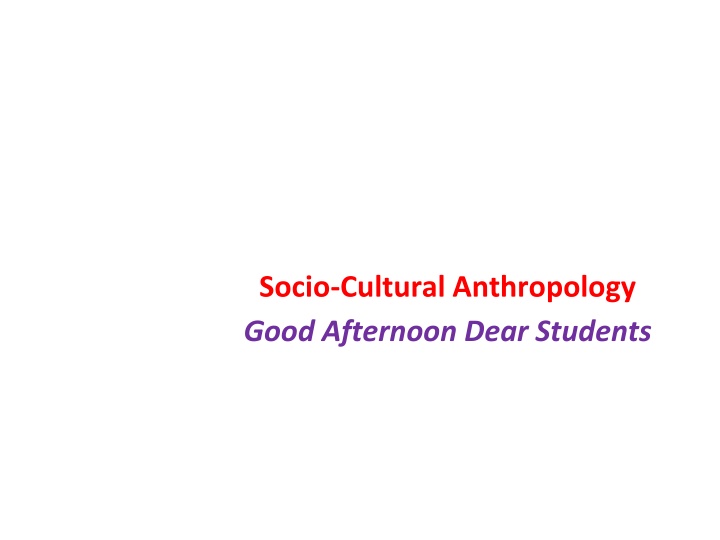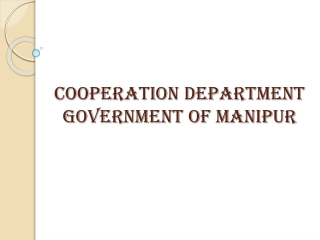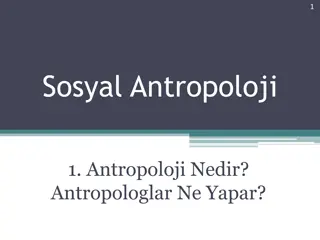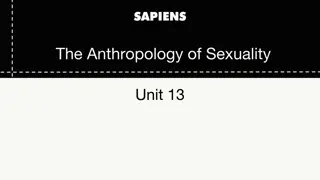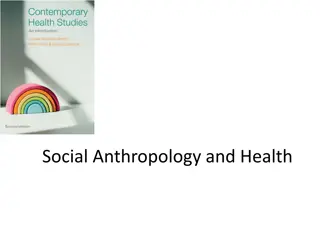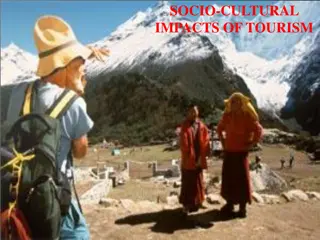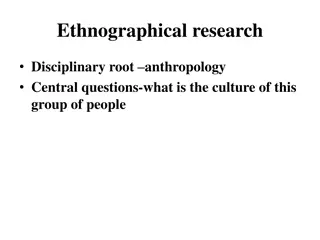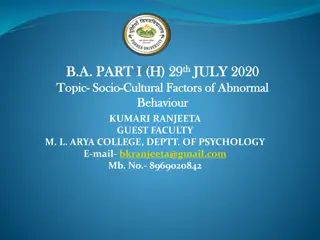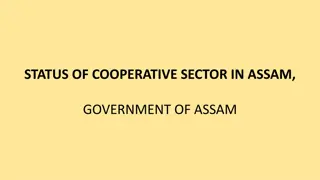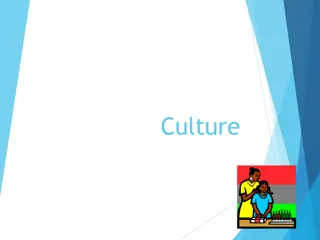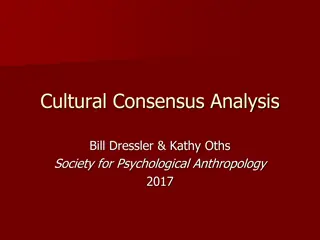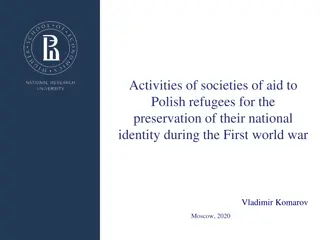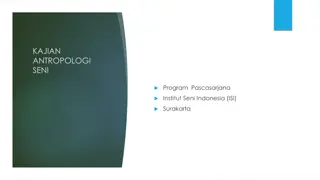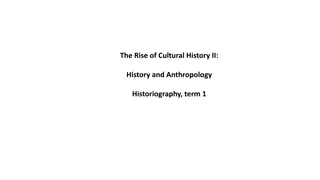Introduction to Socio-Cultural Anthropology: Understanding Human Societies
Explore the holistic study of mankind in Anthropology, delving into various branches, perspectives, and the scope of Social Anthropology. Learn about the relationship of Social Anthropology with other disciplines and its significance in understanding human societies.
Download Presentation

Please find below an Image/Link to download the presentation.
The content on the website is provided AS IS for your information and personal use only. It may not be sold, licensed, or shared on other websites without obtaining consent from the author.If you encounter any issues during the download, it is possible that the publisher has removed the file from their server.
You are allowed to download the files provided on this website for personal or commercial use, subject to the condition that they are used lawfully. All files are the property of their respective owners.
The content on the website is provided AS IS for your information and personal use only. It may not be sold, licensed, or shared on other websites without obtaining consent from the author.
E N D
Presentation Transcript
Socio-Cultural Anthropology Good Afternoon Dear Students
Introduction to Socio-Cultural Anthropology The unit which I am going to teach: 1stUnit: Anthropological Perspective and orientation, Scope and relevance of Social Anthropology, Relationship of Social Anthropology with other disciplines.
Learning Objectives This unit deals with the introduction of the subject Anthropology. It has dealt with different aspects of the subject matter. It has also introduced social anthropology and discussed various aspects related to it. After going through this unit you will be able to:
Define Anthropology Describe the different branches of anthropology Depict the different perspectives of anthropology that give a unique position to this subject. Define social anthropology as a branch of anthropology Discuss the scope and relevance of social anthropology along with its relationship with other disciplines
1.1 Introduction: Do you know that the human species may be the most widespread species in the world? In this unit we will try to understand the place of human being in anthropology. Before that you should know what anthropology is. Anthropology is the holistic study of man. In this unit we will try to define anthropology and will try to highlight its aims. The outline of different sub-fields of anthropology will be discussed here. There are various perspectives in anthropology which makes the subject different from others. Here, we will try to discuss all this aspects. This unit will also try to introduce social anthropology as one its branch along with its scope and relevance. Social anthropology is related to many other disciplines and here we will try to give reflection and overview of all this aspects.
After going through the unit you can assess yourself with the help of model questions along with possible answers provided. Suggested readings will also provide information that will guide with more additional information. You will be able to discover more facts about anthropology for your academic upliftment.
1.2 Orientations in Anthropology: Anthropology is the study of Man. The term comes from the Greek word anthropos for man or human and logos for study . It is a subject which deals with the study of man across space and time. An anthropologists are always interested in finding when, where and why about humans. It is comparatively a young discipline. Though the interest towards studying of human beings can be traced back to the 5thcentury B.C. but the emergence of anthropology as a distinct discipline occurred recently during the 19thcentury.
With the rise of colonialism, missionary activities etc the scope of exploration of people took place. In India also anthropological work begin with the help of missionaries and government officials. They started publishing works in the form monographs etc. The main idea behind the development of anthropology as a subject is the curiosity to know about people, the variations among them, comparison between the past and present society etc.
Apart from this there is a practical side to anthropology also. Application of anthropological knowledge is used to solve human problems too. Thus, it is concerned with humans and their development in all places of the world from millions of years ago to the present day.
